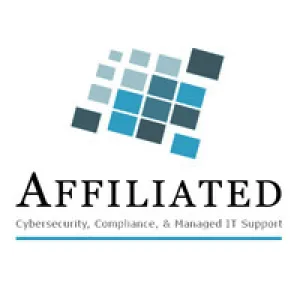Protecting Your Business from Cyber Threats
As cyber threats increase in sophistication and frequency, the impact on businesses, especially in Columbus, Ohio, has become a pressing concern for owners, CFOs, COOs, and CEOs alike. The cost of cyber liability insurance has risen significantly, with insurers tightening policy terms and scrutinizing cybersecurity practices more closely than ever before. While these policies are vital in protecting against financial losses from cyber attacks, many executives are discovering that gaps in coverage or missed requirements can result in denied claims or premium hikes.
To effectively safeguard your business from cyber threats and ensure compliance with your insurance policy, it's essential to address the following key areas, each of which can also help you reduce premium costs.
1. Prioritize Employee Training to Reduce Phishing Risks
Phishing remains one of the most common and effective cyber attack methods, exploiting human error to gain unauthorized access to sensitive systems and data. For Columbus-based companies, the investment in regular employee training can have a profound impact on cybersecurity. Many insurance policies require that businesses have phishing awareness and cybersecurity training programs in place as a condition for coverage.
Consider implementing scenario-based training that educates employees on recognizing phishing attempts, social engineering tactics, and best practices for secure online behavior. Regularly testing employees with mock phishing scenarios helps reinforce this training and reduces the likelihood of costly breaches. By meeting these training requirements, you not only enhance security but may also reduce your premiums, as insurers view proactive training as a way to mitigate risk.
2. Implement Multi-Factor Authentication (MFA) Across Critical Systems
Multi-factor authentication (MFA) is a powerful defense against unauthorized access, providing an additional layer of security beyond passwords. For manufacturers and other industries heavily reliant on sensitive data, MFA can help prevent unauthorized users from accessing critical systems, even if passwords are compromised.
Most cyber liability policies now require MFA for all remote access points, such as VPNs and cloud applications, as well as for privileged accounts with access to sensitive data. Failing to implement MFA could result in a denied claim or increased premiums, as insurers view MFA as a minimum standard for risk reduction. Make MFA implementation a top priority, especially for accounts that grant access to sensitive or business-critical information.
3. Secure Operational Technology (OT) and Conduct Regular Audits
Manufacturers and other industrial sectors are increasingly integrating IT and OT systems, making them vulnerable to cyber attacks that could disrupt operations or compromise safety. Securing these systems requires a unique approach: network segmentation, secure access control, and continuous monitoring are all key to maintaining OT security.
Insurers understand the importance of OT security and often require regular audits or penetration tests to ensure compliance. Consider conducting regular, independent penetration testing and cyber readiness reviews to identify potential vulnerabilities in OT systems. These assessments help ensure that your cybersecurity practices align with policy requirements, reducing the likelihood of claims denials and potentially lowering premium costs. Regular audits demonstrate to insurers that your organization is serious about maintaining a secure environment.
4. Review and Strengthen Third-Party Vendor Management Practices
Third-party vendors can be both a vital resource and a cybersecurity risk. Data breaches originating from vendor access points have become increasingly common, and cyber insurers often assess vendor management practices when underwriting policies. Insurers typically require companies to conduct thorough security assessments of third-party vendors and may even mandate vendor risk management policies as part of your cyber liability insurance requirements.
Ensure that all vendors with access to your systems are vetted, approved, and regularly monitored for compliance with security standards. Consider implementing contracts that specify security obligations, including regular audits or certifications for higher-risk vendors. Strong vendor management practices can mitigate supply chain risks and may contribute to lower premiums, as insurers recognize the reduced risk profile.
5. Strengthen Data Backup and Incident Response Capabilities
In the event of a ransomware attack or data breach, having an incident response plan and reliable data backups is essential for minimizing downtime and recovery costs. Cyber insurers require comprehensive incident response plans, as well as regularly tested backup and recovery processes, as part of policy compliance. Without these safeguards in place, a claim may be denied, and insurers may charge higher premiums due to the increased risk of business interruption.
Ensure that your company has a tested incident response plan and secure, offsite backups. Periodically review and update this plan to reflect new threats and business changes. Testing your response plan and backup systems at least annually not only enhances security but can also reassure insurers of your readiness, potentially leading to lower premiums.
6. Maintain Ongoing Compliance with Policy Requirements
Cyber insurance policies often come with a list of requirements and exclusions, which can vary significantly from one insurer to another. Non-compliance with any aspect of your policy's conditions—such as regular audits, employee training, MFA, or vendor management practices—could lead to claim denials or policy cancellations.
To ensure you remain in compliance and avoid these risks, create a compliance checklist based on your policy's requirements. Designate team members responsible for each area, and consider scheduling regular reviews to assess compliance. Investing time in proactive compliance management not only reduces the likelihood of denied claims but can also contribute to lower premiums as you demonstrate your commitment to risk management.
Building a Resilient Cybersecurity Posture
For companies in the Columbus area, the stakes are high. A single breach can disrupt operations, damage client relationships, and lead to significant financial losses. By prioritizing proactive cybersecurity practices—like regular employee training, MFA implementation, OT security, vendor management, incident response planning, and ongoing compliance—you can strengthen your defenses against cyber threats while potentially reducing your cyber liability insurance premiums.
With cyber insurers placing greater emphasis on compliance and risk management, now is the time for business leaders to take a strategic, proactive approach to cybersecurity. Investing in these practices not only protects your company but positions you as a trustworthy, resilient organization in the eyes of both clients and insurers.




